2nd Reporter Has Spent a Decade in Limbo
. . . Lawyer: ‘System as a Whole Is the Problem’
. . . Hopeful That Dems Will End ‘Vindictiveness’
Harris Wants Context; Media Emphasize Border
Mom Sees Daughter’s Photo on TV, Reunites
Tulsa Massacre Recalls Other Overlooked Killings
UNC’s Pioneer Black Alumni Back Hannah-Jones
Naomi Osaka Story Lays Bare Deeper Tensions
Obama Urges More Listening to Others’ Struggles
‘Asian American History and Journalism’ to Debut
Israel Says It Would Help AP Rebuild in Gaza
Short Takes
[btnsx id=”5768″]

2nd Reporter Has Spent a Decade in Limbo
“Thirzia Galeas, an investigative journalist from Honduras, was taken into ICE custody last Sunday, May 24, after requesting asylum in the United States,” Dashiell Allen reported Tuesday for latinarepublic.com. “She is currently being held at the Stewart Detention Center in Lumpkin, Georgia, where, according to the digital Honduran publication Reportar Sin Miedo, she is in close quarters with people who are Covid-19-positive.
“Galeas is a former reporter for the Committee For Free Expression in Honduras (C-Libre) and does freelance reporting for digital newspapers such as Conexihon.hn. She’s a grant recipient of the International Women’s Media Foundation and primarily reports stories on Human Rights, women’s rights, and environmental rights.
“Before fleeing Honduras, Galeas had reported on environmental activists fighting against the extraction of resources by multinational corporations for the independent media organization Reporteros de Investigación.
“According to C-Libre, a man identified as Lester Obando, an alleged public prosecutor, threatened Galea’s life at a closed event in December 2020. But as reported by C-Libre, that wasn’t the first time she received threats – ‘The hostilities faced by journalist Thirzia Galeas date back to December 13, 2011, when a group of women journalists were violently repressed by members of the Presidential Honor Guard when they arrived at a protest condemning the murders of members of the press in Honduras.’ “
Allen also wrote, “Stewart Detention Center is known as one of the most dangerous ICE detention centers in the country -– a recent report described it as a ‘nest of negligence and abuse,’ and the ACLU considers it to be one of the deadliest.”
The International Women’s Media Foundation is remaining publicly silent. “Because her case is ongoing, we are unable to comment at this time,” spokesperson Madison Forker messaged Journal-isms Thursday.
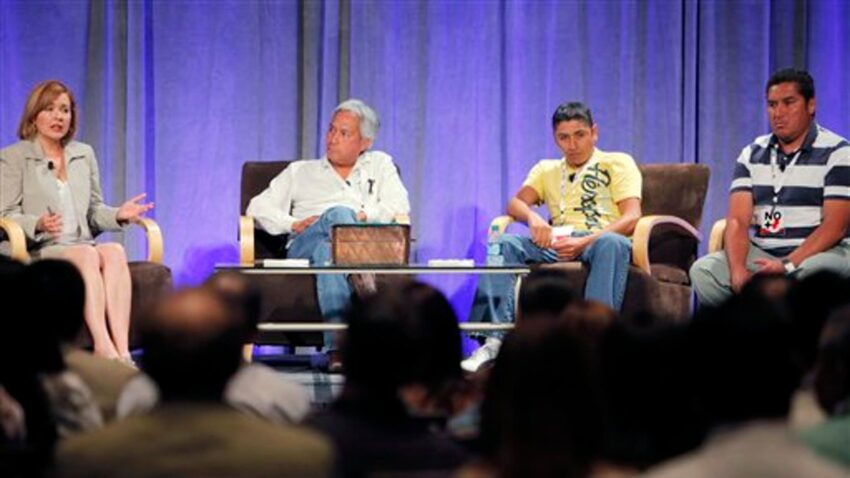
. . . Lawyer: ‘System as a Whole Is the Problem’
“This isn’t the first time ICE has detained a Latin American journalist seeking asylum – in 2008 Mexican journalist Emilio Gutierrez fled to the US with his 15-year old son, after his reporting on Mexican drug cartels put his life in danger,” Dashiell Allen continued Tuesday for latinarepublic.com.
“After nearly a decade in limbo, a judge ruled against his asylum case in 2017 and he was almost deported to Mexico; during that time he and his son were in ICE custody for at least 8 months. But The National Press Club and 18 other journalist organizations intervened on his behalf, appealing the ruling. Now, with a new administration in Washington, Gutierrez and The National Press Club are hopeful that his case will be given a second look.
“ ‘I have to believe that as the Biden administration works to correct the asylum system, political leaders will now finally take an honest look at my case and grant me and my son the chance to truly live without fear,’ Gutierrez said in a short video, adding ‘I still believe that justice is possible.’ . . .
“The US Citizenship Act of 2021 – President Biden’s promised legislation on immigration and addressing ‘root causes’ in Central America – only mentions journalists to say that it will support, ‘government protection programs that provide physical protection and security to human rights defenders, journalists, trade unionists, whistleblowers, and civil society activists who are at risk’ – but it doesn’t provide assurance that asylum cases like Galeas’s – whose life was allegedly threatened by members of her own country’s government – would be accepted or given priority.”
- James Goodman, The Progressive: Keeping the Public Eye on ICE (May 7)
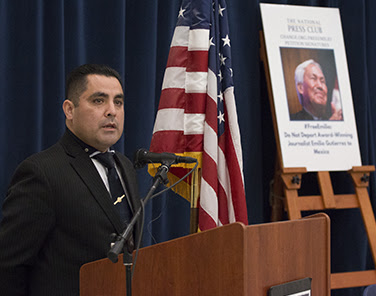
Gutiérrez has been in this space on and off for 10 years, since he was honored at a National Association of Hispanic Journalists convention in June 2011. His was one of three cases National Press Club highlighted May 3 on World Press Freedom Day.
His lawyer, Eduardo Beckett, messaged Journal-isms on Thursday:
“Emilio is in [Ann Arbor,] Michigan awaiting for the Board of Immigration Appeals to send us a briefing schedule. As you know, 13 years of fighting for asylum is extreme and a waste of judicial resources and shows how broken the system is.
“Hopefully, during this administration, he will finally win his case. Emilio has been through the following administrations: the end of Bush, Obama (twice), Trump, and now the Biden administration. I have copied a local article that highlights how the judges in El Paso adjudicate cases. They are hostile and treat asylum seekers as if they have committed a crime for applying for asylum.
“There is no border crisis, the only crisis is the one created by the Department of Justice and the broken immigration system that is hostile against asylum seekers as Emilio. Of course, there are good immigration judges too, but they have mandates dictated by the [attorneys general] of each administration.
“I am proud that he has picked up more English and is hanging tough during one of the toughest times in the United States. . . . I would tell journalists that the focus should be where these mandates come from, Washington. I would question why every bad ICE director from El Paso goes on to get promoted as Corey A. Price who is now number four at ICE.
“Why does ICE continue to detain asylum seekers for prolonged periods during the pandemic? Question how ICE is resisting the Biden administration from the inside as is CBP and Border Patrol. They were the biggest supporters of Trump. Question why even under the Biden administration some immigration judges are resisting the Biden administration by continuing to violate due process. Thus, the system as a whole is the problem. The system created a crisis then blames the asylum seekers for political gain. That is the border crisis.”
Beckett attached a link to a Mother Jones article from July 2020, “Defended Anti-Gay and Anti-Muslim Causes. Now He’s an Immigration Judge.” Beckett noted, “This is the new Chief Immigration Judge for the El Paso Court.”

. . . Hopeful That Dems Will End ‘Vindictiveness’
“It’s a classic case of justice delayed/justice denied and a classic tip of the iceberg story,” messaged Kathy Kiely, (pictured below) Lee Hills Chair in Free Press Studies, Missouri School of Journalism, and a Press Freedom Fellow at the National Press Club Journalism Institute, on the case of Emilio Gutiérrez Soto.
 “As all of us involved in Emilio’s case have observed on numerous occasions, if it’s this hard for a journalist who has such a well-connected team of advocates, you can only imagine how bad things are for the average asylum seeker.”
“As all of us involved in Emilio’s case have observed on numerous occasions, if it’s this hard for a journalist who has such a well-connected team of advocates, you can only imagine how bad things are for the average asylum seeker.”
Lynette Clemetson (pictured below), who directs the Knight-Wallace Fellowships for Journalists and the Livingston Awards at the University of Michigan, added Thursday that she and Kiely “have been partners in working toward justice for Emilio for the past three years.
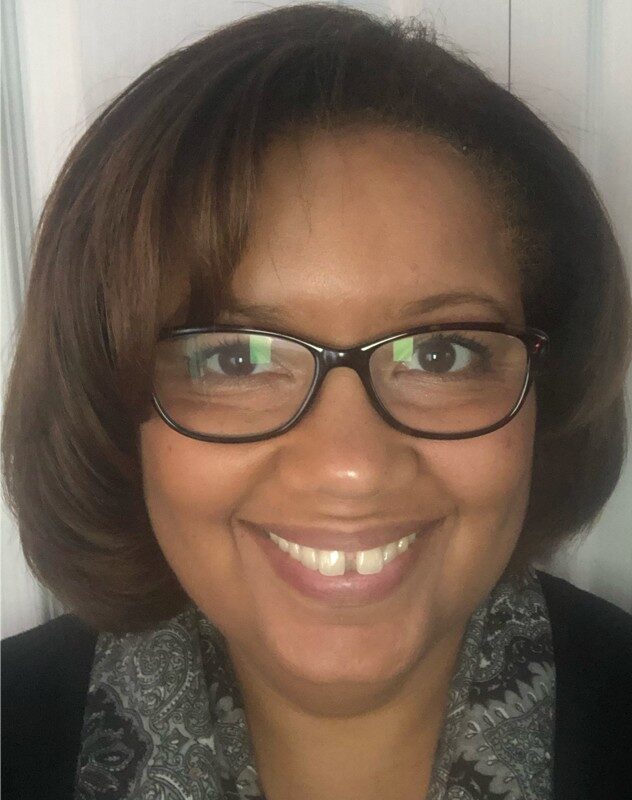 “There have been numerous FOIAs filed to obtain ICE records on Emilio. Kathy continues to receive FIOA responses in dumps of hundreds of pages at a time, with significant redactions. Still, in recent dumps there is evidence of what we have suspected all along: that ICE officials were targeting Emilio because he spoke at the National Press Club in October 2017 against Trump administration immigration and asylum policies and tactics.
“There have been numerous FOIAs filed to obtain ICE records on Emilio. Kathy continues to receive FIOA responses in dumps of hundreds of pages at a time, with significant redactions. Still, in recent dumps there is evidence of what we have suspected all along: that ICE officials were targeting Emilio because he spoke at the National Press Club in October 2017 against Trump administration immigration and asylum policies and tactics.
“Emilio was taken into custody in December 2017, two months after his Press Club remarks. He was held for nearly 8 months and was released in late July 2018 when the Press Club and other advocates won [a] skirmish in the larger battle. A judge ordered the court to turn over the documents tied to his arrest. Instead of turning them over, Emilio and his adult son were released in late July 2018. They came to Ann Arbor where Emilio joined the 2018-19 Knight-Wallace Fellowship class. You can read all the details here.
” He was finishing the fellowship when the judge in El Paso ruled against his case. Eduardo Beckett successfully filed an appeal. Emilio, 58 next week, and Oscar, 28, remain in Ann Arbor, very much in limbo, while they await word on their fates. “
The National Press Club “is working now with Reporters Committee to index the FIOA findings so we can make a case for getting some redacted material unredacted.”
Kiely continued, “As Lynette noted, documents obtained through our FOIA suggest that authorities got very interested in Emilio’s appearance before the National Press Club. At his first check in after that appearance, he was detained and narrowly missed being deported (Ed [Beckett] got the Board of Immigration Appeals to delay the order in the nick of time).
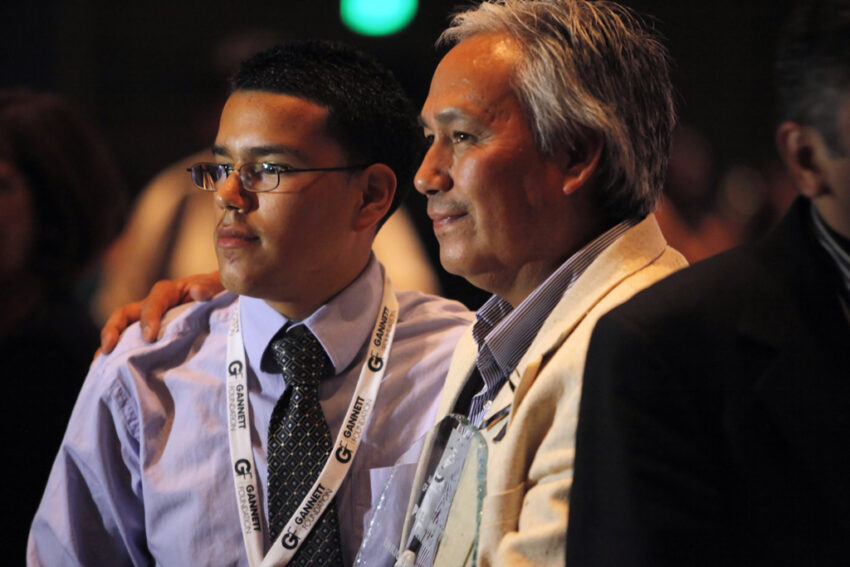
“In what appeared to be an act of pure vindictiveness, ICE then put Emilio and his son Oscar in detention, providing no good reason for this. They ignored appeals from many press organizations, a number of members of Congress and the bishop of El Paso.
“ICE only released Emilio days before they were going to have to comply with a federal judge’s order to release all of their communications about him on discovery (ie faster and less redacted than what we are getting via FOIA). By releasing Emilo, they mooted the requirement that they release their records. If you hold a guy eight months despite appeals from prominent citizens and then release him only to avoid having to cough up records, doesn’t that suggest you have something to hide? Ergo, our FOIA effort.
“But the FOIA is just one effort to keep the pressure on the government to do the right thing. Now that Democrats – or, more to the point, people who are not as xenophobic as our last president — control Congress and the Department of Homeland Security and the Justice Department, we are hoping that someone will decide to STOP WASTING TAXPAYER MONEY persecuting a good guy.”
ICE did not respond to a request for comment.
- Aura Bogado and Laura C. Morel, Reveal: ‘I’m going to tase this kid’: Government shelters are turning refugee children over to police
???? UPDATE: Per the eyewitness account of @UniNoticias Mexico City correspondent Jésica Zermeño, @VP Kamala Harris’ communications team was fully informed as to the proper affiliations of María Fernanda Reyes, both before and after the press conference. pic.twitter.com/2dxrF0mBih
— Jorge Bonilla (@BonillaJL) June 10, 2021
Harris Wants Context; Media Emphasize Border
Vice President Kamala Harris‘ first foreign trip received polarizing responses in the news media: Right-wing and many mainstream outlets seized upon her decision not to visit the U.S.-Mexico border, while left-wing ones took her to task for emphasizing to Guatemalans, “Don’t come.”
Some said it was simply that Harris handled the media poorly when asked about the border, particularly in an exchange with NBC’s Lester Holt.
“In an interview with Holt that aired Tuesday, Harris was pressed about the fact that she hasn’t yet visited the US-Mexico border,” Nikki Carvajal, Kate Sullivan, Dana Bash, Phil Mattingly and Jeremy Diamond reported for CNN.
” ‘At some point, you know, we are going to the border,’ Harris said in the interview. ‘We’ve been to the border. So this whole, this whole, this whole thing about the border. We’ve been to the border. We’ve been to the border.’
“Holt responded: ‘You haven’t been to the border.’
” ‘I, and I haven’t been to Europe. And I mean, I don’t — I don’t understand the point that you’re making,’ Harris said with a laugh. She added: ‘I’m not discounting the importance of the border.’
“The vice president’s team, for their part, were frustrated by what they perceive to be questioning driven by Republican attacks falsely painting her as the administration’s border czar, rather than focused on the root causes of migration.”
Harris emphasized later that the issue must be taken in context and that those root causes must be dealt with; focusing only on the border is short-sighted.
On MSNBC, Joy Reid said on “The ReidOut” Tuesday, “What we got mostly from the Guatemala trip was: Don’t come. And that was sort of what it was boiled down to.” Reid turned to Maria Hinojosa, executive producer of public radio’s “Latino USA,” for her thoughts: “I think that’s probably because there was extraordinary blowback by hearing the vice president, daughter of immigrants, say to refugees: Don`t come,” Hinojosa said.
“So I think there was a pause and just like, OK, wait a second, legally, refugees can come and should come, because, I don’t know, that’s basically the Statue of Liberty, stone’s throw from where I am, that’s kind of what she’s saying. That’s what we advertise.”
Reid argued for more context. “The United States` Southern border with Mexico is not the only important issue that matters to the world. Those seven countries have a long history with the United States, much of it troubling. The United States used much of Central America as essentially a giant plantation.
“Google the United Fruit Company. We have a long, sordid, torrid history with this region. The history does not begin at the border, where people are showing up. That is not the only important thing that matters.
“There`s a whole history that long precedes people arriving at the border between Mexico and the United States. And to reduce what we just heard, 10 minutes of that, to, are you going to the border, to me, strikes me, personally, as missing a huge opportunity. We have this huge opportunity to understand the reasons why the things that preceded that happening.”
- El Faro English: Harris’ Rough Landing in Guatemala
- Michael Luciano, Mediaite: Univision News Says Woman Who Told Kamala Harris ‘I Voted For You’ While Posing As Their Reporter Is Not Affiliated With Them

Mom Sees Daughter’s Photo on TV, Reunites
“Six years had passed since Glenda Valdez kissed her toddler goodbye and left for the United States — six years since she held Emely in her arms,” Acacia Coronado reported for the Associated Press.
“But here she was, at Texas’ Austin-Bergstrom International Airport, tearfully embracing the little girl she left behind. And it happened only because she had glimpsed a televised photo of Emely, part of an Associated Press story on young people crossing the Mexican border alone. . . .”
On the 100th anniversary of the Tulsa Race Massacre, we remember all those who were killed and the survivors who bravely continue to share their stories so that we never forget this painful part of our history. Take a moment to learn about what happened: https://t.co/RiqrSpKGNz
— Barack Obama (@BarackObama) May 31, 2021
Former President Barack Obama directed his Twitter followers to a Washington Post story on the 1921 Tulsa Massacre by Deneen L. Brown, who has become the go-to reporter on the atrocity. A PBS film, “Tulsa: The Fire and the Forgotten,” aired May 31 and focused on Brown’s search for mass graves. Another documentary, “Rise Again: Tulsa and the Red Summer,” airs on Nat Geo TV on June 18 at 9 p.m. Eastern. It focuses on Brown as she travels the country, investigating massacres that occurred during the reign of terror known as Red Summer, which affected more than 26 Black communities.
Tulsa Massacre Recalls Other Overlooked Killings
“The 1921 Tulsa Race Massacre was neither the first nor the only mass killing of black Americans in that period,” the Associated Press wrote Jul 23, 2019, nearly two years before the current centennial of the tragedy.
“It flowed in small towns like Elaine, Arkansas, in medium-size places such as Annapolis, Maryland, and Syracuse, New York, and in big cities like Washington and Chicago. Hundreds of African American men, women and children were burned alive, shot, lynched or beaten to death by white mobs. Thousands saw their homes and businesses burned to the ground and were driven out, many never to return.
“It was branded ‘Red Summer’ because of the bloodshed and amounted to some of the worst white-on-black violence in U.S. history.
“Beyond the lives and family fortunes lost, it had far-reaching repercussions, contributing to generations of black distrust of white authority. But it also galvanized blacks to defend themselves and their neighborhoods with fists and guns; reinvigorated civil rights organizations like the NAACP and led to a new era of activism; gave rise to courageous reporting by black journalists; and influenced the generation of leaders who would take up the fight for racial equality decades later. . . .”
The story also said, “Researchers believe that in a span of 10 months, more than 250 African Americans were killed in at least 25 riots across the U.S. by white mobs that never faced punishment. Historian John Hope Franklin called it ‘the greatest period of interracial strife the nation has ever witnessed.’ . . .
“Black journalists like [Ida B.] Wells played an important role in getting the story out.
” ‘Black newspapers like the Chicago Defender were instrumental in providing an alternate voice that represented why African Americans deserved to be here, deserved equal rights and were, in some cases, justified in fighting,’ said Kevin Strait, a curator at the Smithsonian National Museum of African American History and Culture. . . .”
- Karen Grigsby Bates, NPR: In Both Fact And Fiction, The Truth Of Tulsa Is Hard To Stomach (May 29)
- Rep. James Clyburn, syndicated: Recognizing the Centennial of the 1921 Tulsa Race Massacre (June 2)
- Editorial, Baltimore Sun: The Tulsa massacre and denial of tenure for Nikole Hannah-Jones: the whitewashing of American history continues (June 4)
- Marquise Francis, Yahoo News: Two years before the Tulsa massacre, the ‘Red Summer’ saw white mobs murder hundreds of Black Americans (June 1)
- Lakshmi Gandhi, NBC News: Tulsa Race Massacre: Fact checking myths and misconceptions From details of the elevator encounter that led to the massacre to false narratives in newspapers, experts clarify some lesser known moments
- Tom Hanks, New York Times: You Should Learn the Truth About the Tulsa Race Massacre
- Janine Jackson with Joseph Torres, Fairness & Accuracy In Reporting: Tulsa: ‘A Cover-Up Happens Because the Powers That Be Are Implicated’
- Journal-isms: When Media Again Helped Foment a White Riot (scroll down) (Jan. 17)
- Kwasi Konadu, Black Perspectives: Tulsa and the Open Question of Justice, 1921–2021
- Kurtis Lee, Los Angeles Times: This newspaper has never forgotten the 1921 Tulsa Race Massacre — and its fight continues (June 4)
- William Lee, Chicago Tribune: Black teen whose death sparked 1919 race riots set to receive grave marker 102 years later (June 4)
- Roy S. Johnson, al.com: The true legacy of Black Wall Street? I lived it; my father, a massacre witness, embodied it (May 31)
- Meagan Jordan, The Undefeated: How three survivors of the Tulsa Race Massacre continue to fight for reparations 100 years later
- Victor Luckerson, New Yorker: The Women Who Preserved the Story of the Tulsa Race Massacre (May 28)
- Jennifer Matthews, BET.com: The Tulsa Massacre: A Journalist’s Story Behind The Story
- Michele L. Norris, Washington Post: Germany faced its horrible past. Can we do the same?
- Victor Omondi, yourblackworld.net: Tulsa Race Massacre Survivors To Receive $300K Compensation
- Clarence Page, Chicago Tribune: Let’s not forget: Chicago had a ‘Black Wall Street’ too (June 1)
- Gay Palsey, Black Perspectives: Tulsa: “By repeated blows the oak is felled”
- J. Paul, Black Perspectives: Sport as a Place of Violence in the Tulsa Race Massacre
- Leonard Pitts Jr., Miami Herald: Tulsa the site of just one of many race massacres — but let’s not talk about them (June 1)
- Eugene Robinson, Washington Post: It was much more than Tulsa (May 31)
- Marc J. Spears, The Undefeated: George Hill wants to talk about the Tulsa Race Massacre
- Brandon Tensley, CNN: It’s more critical than ever that newsrooms reflect the communities they cover. We could learn from Tulsa (June 3)
- Kristal Brent Zook, Zora: Did Greed Derail a Handful of Tulsa Massacre Commemoration Events? (June 1)
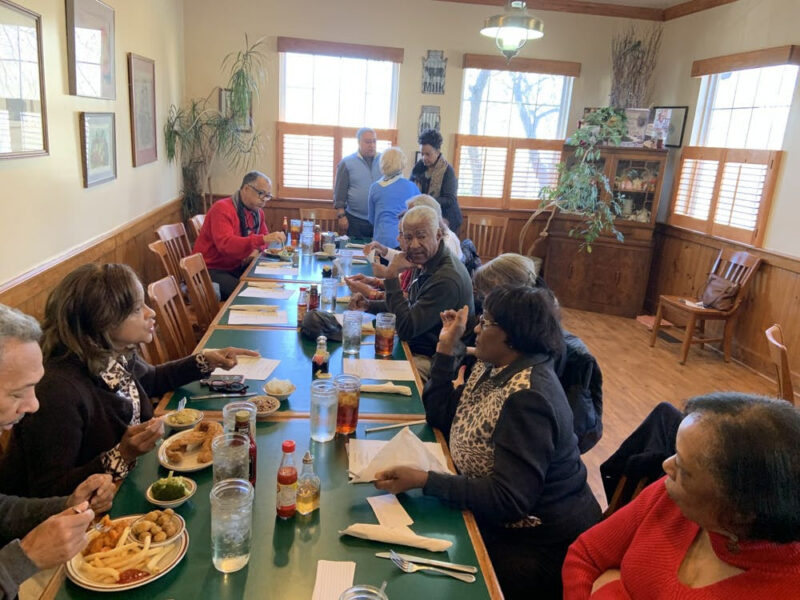
UNC’s Pioneer Black Alumni Back Hannah-Jones
“Twenty-one members of the UNC Black Pioneers — an organization of Black alumni who graduated between 1952 and 1972 — released a statement on Wednesday calling on the Board of Trustees to take action in granting Nikole Hannah-Jones a tenured position at the University,” Lauren McCarthy reported Thursday for the Daily Tar Heel, the student newspaper.
“Black Pioneer James Cofield said the organization was created to help Black alumni from those years share their unique experiences and to lend their voices on important issues in the larger community.
“ ‘The undersigned members of the UNC Black Pioneers fully support the joint statement of support for tenure for Nikole Hannah-Jones issued by the Carolina Association of Black Journalists and the National Association of Hispanic Journalists at UNC,’ the statement read.
“In their statement, the CABJ and the NAHJ wrote that the two previous Knight Chairs at UNC arrived with tenure, and Hannah-Jones would be the first to not receive the same treatment — despite overwhelming support from Hussman faculty.
“After the state-sanctioned anti-Black violence and police brutality during summer 2020, the University committed to prioritizing diversity, equity and inclusion through emails and miscellaneous committees,” the statement read.
“But when Black community members called for action on Hannah-Jones’ tenure, the CABJ and NAHJ said, UNC didn’t live up to these promises. . . .”
- Nick Anderson and Joe Heim, Washington Post: Black female professors voice solidarity with journalist Nikole Hannah-Jones in UNC tenure showdown
- Association for Education in Journalism and Mass Communication: A Statement from the Organizations’ Leadership Supporting UNC Faculty (May 24)
- Grace Hauck, USA Today: Denying Nikole Hannah-Jones tenure will have ‘dire repercussions’ for UNC, faculty warn
- Ja’han Jones, HuffPost: Top Candidate Turns Down UNC Job, Cites School’s Mistreatment Of Nikole Hannah-Jones
- Isaac Kamola, Inside Higher Ed: Where Does the Bizarre Hysteria About ‘Critical Race Theory’ Come From? Follow the Money!
- Alice Marwick and Daniel Kreiss, Slate: The Conservative Disinformation Campaign Against Nikole Hannah-Jones (June 2)
- Lauren McCarthy, Daily Tar Heel: UNC responds to letter from Hannah-Jones’ legal team as deadline passes to offer tenure
- Nicole Moorefield, Daily Tar Heel: Hussman says he was ‘concerned’ about his core values of journalism and 1619 Project
- Michela Moscufo, NBC News: The country’s first municipal reparations program is off to a rocky start (June 2)
- Elie Mystal, The Nation: The Miseducation of White Children
- Gary Pearce, WRAL-TV, Raleigh, N.C.: UNC campus chaos rooted in one-party control?
- Will Sutton, NOLA.com: 1619 Project creator deserves UNC tenure, and the board should butt out
- Benjamin Wallace-Wells, New Yorker: What Do Conservatives Fear About Critical Race Theory?
During a recent episode of ESPN’’s “First Take,” Stephen A. Smith opened up about how he is still learning to cope with the passing of his mother. “I do not want to be here, but I have a job,” Smith said. “I signed up and the NBA Playoffs are going on and people expect to hear from me.”
Naomi Osaka Story Lays Bare Deeper Tensions
“Congratulations, tennis. you’ve won neither the battle nor the war with Naomi Osaka, but you have just bullied one of the biggest stars in your sport into quitting a major tournament that could use the publicity she would have brought to it,” Jemele Hill wrote June 2 for The Atlantic.
“Osaka, the second-ranked woman in international tennis and the highest-paid female athlete in the world, withdrew from the French Open after a power struggle with tournament officials over whether she would attend obligatory press conferences. Osaka has had trouble in that tournament in the past, having never advanced out of the third round.
“Last week, Osaka announced on social media that she was skipping all news conferences during the event to protect her mental health. ‘I’ve often felt that people have no regard for athletes’ mental health and this rings very true whenever I see a press conference or partake in one,’ she wrote last week. ‘We’re often sat there and asked questions that we’ve been asked multiple times before or asked questions that bring doubt into our minds, and I’m just not going to subject myself to people that doubt me.’
“Critics quickly portrayed Osaka as shirking one of her fundamental duties: communicating with the public. In reality, the episode laid bare some of the deeper tensions in big-money athletics. Who controls a sport — the leagues that organize the competition, or the athletes who actually play? When athletes have direct access to fans via social-media platforms, what role should traditional sports media play? And when athletes, particularly athletes of color, feel mistreated by tournaments, sports leagues, and media outlets alike, what recourse do they have? . . . .”
- Jon Allsop, Columbia Journalism Review: Naomi Osaka and the meaning of press freedom (June 1)
- Analis Bailey, USA Today: It’s time to accept that Naomi Osaka is human before she’s an athlete (May 30)
- Kavitha Davidson with the Rev. Al Sharpton, NBC News: Sports media lacks ‘sensitivity and informed questioning’, Naomi Osaka under ‘different pressure’ (video)
- Chad Finn, Boston Globe: Naomi Osaka episode begs the question: What role should the media play in the mental health of athletes?
- Renée Graham, Boston Globe: Naomi Osaka takes a stand for Black women’s mental health (June 1)
- Josephine Harvey, HuffPost: Venus Williams ‘Drops The Mic’ With Fiercely Honest Take On Naomi Osaka Situation (June 1)
- David Jones, Penn Live: Naomi Osaka might learn to navigate press conferences after she orders her own young mind (June 2)
- Carrie Kerpen, Forbes Woman: What We Can All Learn From Naomi Osaka About Setting Boundaries (June 1)
- Jonathan Liew, the Guardian: We’re not the good guys: Osaka shows up problems of press conferences (May 31)
- Terence Moore, Forbes: Naomi Osaka, Kyrie Irving And Other Athletes Troubled By The Media Should Do Something Else (June 2)
- Tony Norman, Pittsburgh Post-Gazette: Grand-slamming the French Open (June 2)
- Ben Strauss, Washington Post: Naomi Osaka ignites a fight over the future of postgame news conferences (June 3)
- Clinton Yates, The Undefeated: Tennis world needs to check itself after Naomi Osaka pulls out of French Open (June 1)
- Shalise Manza Young, Yahoo Sports: If you’re upset with Naomi Osaka for withdrawing from the French Open, you haven’t been listening (June 1)
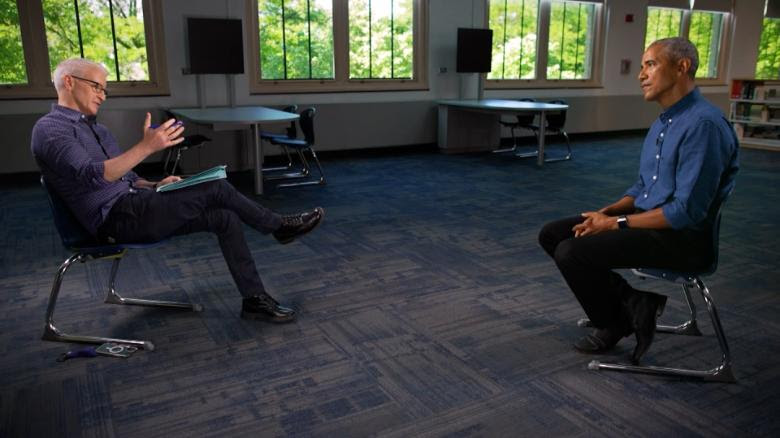
Obama Urges More Listening to Others’ Struggles
“We have more economic stratification and segregation. You combine that with racial stratification and the siloing of the media, so you don’t have just Walter Cronkite delivering the news, but you have 1,000 different venues,” former president Barack Obama told CNN’s Anderson Cooper Monday.
“All that has contributed to that sense that we don’t have anything in common.” The solution, Obama said, is more face-to-face meetings where people are hearing each other’s struggles and stories, Dan Merica reported for CNN. ” ‘The question now becomes how do we create those venues, those meeting places for people to do that,’ he said. ‘Because right now, we don’t have them and we’re seeing the consequences of that.’
“At the heart of some of these divisions, Obama argued, is race — a through line that defined Obama’s rise in politics and his election as the first Black president.
“The former President said during the interview that it remains ‘hard for the majority… of White Americans to recognize you can be proud of this country and its traditions and its history and our forefathers and yet, it is also true that this terrible stuff happened.’
” ‘The vestiges of that linger and continue,’ Obama said. ‘And the truth is that when I tried to tell that story, oftentimes my political opponents would deliberately not only block out that story but try to exploit it for their own political gain.’ . . . “

‘Asian American History and Journalism’ to Debut
“In the days and weeks following the Atlanta shooting that killed eight women, six of whom were Asian American, May Lee noticed a stark difference in the media coverage of the event,” Emmett Fuchs reported Wednesday for the Daily Trojan at USC Annenberg. “The coverage, Lee said, by mainstream, predominantly white media outlets, versus that of Korean and other Asian outlets was ‘very different.’ ”
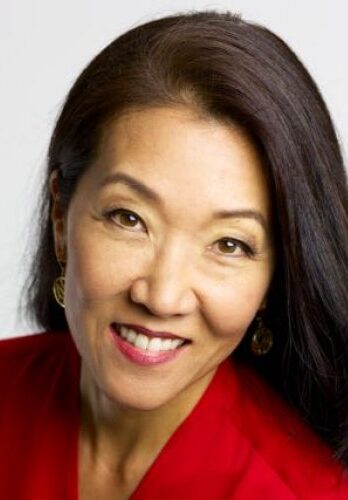 “Lee (pictured), a journalist and adjunct professor at the USC Annenberg School for Communication and Journalism, said that mainstream outlets, unaware of cultural sensitivities and what Asian Americans were going through ‘skew[ed] the narrative,’ dehumanized the victims through hypersexualization and ‘show[ed] more sympathy toward the shooter than the actual victims,’ as in the case with the sheriff spokesman. On the other hand, Asian and Korean media outlets told a more complete and accurate story, Lee said, because of their awareness of cultural sensitivities.
“Lee (pictured), a journalist and adjunct professor at the USC Annenberg School for Communication and Journalism, said that mainstream outlets, unaware of cultural sensitivities and what Asian Americans were going through ‘skew[ed] the narrative,’ dehumanized the victims through hypersexualization and ‘show[ed] more sympathy toward the shooter than the actual victims,’ as in the case with the sheriff spokesman. On the other hand, Asian and Korean media outlets told a more complete and accurate story, Lee said, because of their awareness of cultural sensitivities.
“While the Atlanta shootings are a recent example, Lee said media bias against Asian Americans has persisted throughout American history, citing the media’s pro-government stance during Japanese internment. With the knowledge of those biases in media and the anxiety and fear from the past year, in which hate crimes against Asians rose 114% in Los Angeles from 2019 to 2020 according to the Los Angeles Times, Lee pitched a class that would tackle these issues to Gordon Stables, the director of the School of Journalism.
“Over the course of just a couple of months, Stables fast-tracked the course, and Lee wrote the curriculum in a few weeks. The class, titled ‘Asian American History and Journalism,’ will be open to students for the upcoming fall semester.
“The class ‘combines the idea of [Asian American and Pacific Islander] history and how journalism played a role in perpetuating stereotypes, misleading the public into thinking certain ways, covering stories in a very biased way just because of the area, and then also because of the lack of knowledge when it came to different Asian cultures in America,’ Lee said. . . .”
- Alissa Falcone, Drexel Now, Drexel University: Communications Professor Analyzes Local Media Coverage of Japanese-American Incarceration Camps (July 6, 2015)
Israel Says It Would Help AP Rebuild in Gaza
“Israel’s ambassador to the United States said Tuesday that Hamas militants tried to disrupt Israel’s Iron Dome rocket defense system from a Gaza building housing The Associated Press and other news outlets, prompting the Israeli air force to destroy the high rise last month. The AP said it has not seen evidence to support the claim,” Josef Federman reported Tuesday for the AP.
“Ambassador Gilad Erdan issued his statement a day after meeting the AP’s president and chief executive, Gary Pruitt, and Ian Phillips, vice president for international news, at the AP’s New York headquarters.”
In addition, “The AP renewed its call to see evidence backing Israel’s claim that Hamas militants were operating in the building.”
Federman also reported, ” ‘AP is one of the most important news agencies in the world and Israel does not suspect its employees were aware a covert Hamas unit was using the building in this way,’ he said.
“ ‘I reaffirmed that Israel upholds the importance of press freedom and strives to ensure the safety of journalists wherever they are reporting. Israel is willing to assist AP in rebuilding its offices and operations in Gaza,’ he added.
- Akela Lacy, The Intercept: Canadian Journalists Fear Retaliation for Criticizing Coverage of Israeli Attacks on Gaza (May 20)
- Akela Lacy, The Intercept: Journalists in Australia Censured for Demanding Better Coverage of Israel and Palestine (May 27)
Short Takes
The New Yorker won for video #Ellies
That’s the fifth award for The New Yorker tonight!https://t.co/CAhwSXusMK
— Kerry Flynn ? (@kerrymflynn) June 11, 2021
The American Society of Magazine Editors also honored a series of two articles from ProPublica, by Lizzie Presser, which highlighted racial disparities in diabetic amputations and kidney care. It won for public interest.
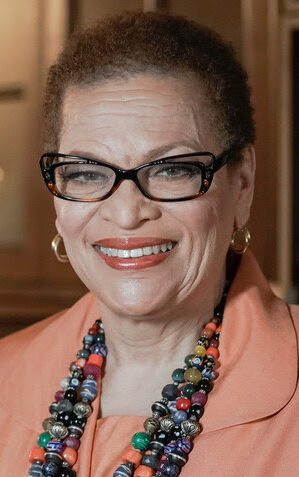 Julianne Malveaux (pictured), economist, columnist and president of the historically Black Bennett College for women from 2007 to 2012, has been appointed dean of the new College of Ethnic Studies at Cal State LA, the school announced Tuesday. It is the first such college to be established in the United States in 50 years, the school said. “Malveaux will take the helm of this unique college, which focuses on an interdisciplinary analysis of the histories, cultures and social experiences of people of color, as debates over racial injustices and pedagogy make headlines.”
Julianne Malveaux (pictured), economist, columnist and president of the historically Black Bennett College for women from 2007 to 2012, has been appointed dean of the new College of Ethnic Studies at Cal State LA, the school announced Tuesday. It is the first such college to be established in the United States in 50 years, the school said. “Malveaux will take the helm of this unique college, which focuses on an interdisciplinary analysis of the histories, cultures and social experiences of people of color, as debates over racial injustices and pedagogy make headlines.”
 Zita Arocha (pictured), an educator who worked for more than a dozen years as a reporter for The Washington Post, the Miami Herald, The Miami News and the Tampa Times, has been named interim executive director of the National Association of Hispanic Journalists. Alberto B. Mendoza announced his departure from the job to become managing director of the John S. Knight Journalism Fellowships at Stanford University.
Zita Arocha (pictured), an educator who worked for more than a dozen years as a reporter for The Washington Post, the Miami Herald, The Miami News and the Tampa Times, has been named interim executive director of the National Association of Hispanic Journalists. Alberto B. Mendoza announced his departure from the job to become managing director of the John S. Knight Journalism Fellowships at Stanford University.
- Joel Simon, executive director of the Committee to Protect Journalists, has informed the board of directors that he will step down by the end of the year after almost a quarter century at the organization, including 15 years in his current role, CPJ said Wednesday. “Board Chair Kathleen Carroll will lead a committee of board members to identify a successor to Simon, who will assist with the transition. CPJ has engaged Spencer Stuart, a global executive search and leadership advisory firm, to help with its search.”
- Alden Global Capital, the hedge fund that last month acquired Tribune Co., has canceled the summer intern program at the Daily News in New York, even after at least four young journalists accepted offers, the Daily News Union tweeted Sunday. “The hedge fund, which seized full control of the paper just a few weeks ago, is now targeting the next generation of journalists as it attacks the current one,” the union said.
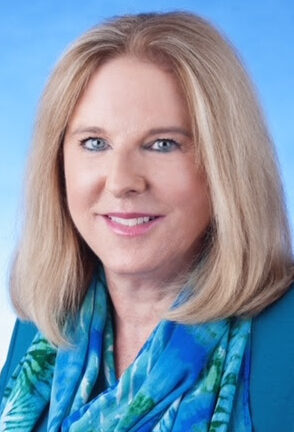 Myriam Márquez (pictured) has become interim executive director of the News Leaders Association, the result of the merger of the American Society of News Editors and Associated Press Managing Editors. “She has served as executive editor of El Nuevo Herald; editorial board editor of the Miami Herald; enterprise editor of the Orlando Sentinel, as well as metro editor, columnist and news reporter. She has been senior adviser and communications director for the office of the mayor in Miami-Dade County overseeing the PIOs [public information officers] in 24 departments and helping reporters get the information they need to inform the public,” a May 17 announcement said. She succeeds Fran Reilly, who was named executive director in May 2020.
Myriam Márquez (pictured) has become interim executive director of the News Leaders Association, the result of the merger of the American Society of News Editors and Associated Press Managing Editors. “She has served as executive editor of El Nuevo Herald; editorial board editor of the Miami Herald; enterprise editor of the Orlando Sentinel, as well as metro editor, columnist and news reporter. She has been senior adviser and communications director for the office of the mayor in Miami-Dade County overseeing the PIOs [public information officers] in 24 departments and helping reporters get the information they need to inform the public,” a May 17 announcement said. She succeeds Fran Reilly, who was named executive director in May 2020.
- “Major Kudos to NABJ Atlanta @aabjorg chapter,” Dorothy Tucker, president of the National Association of Black Journalists, tweeted Saturday. “When leaders discovered $$$$ missing from the chapter’s account, they filed a police report and a claim with their insurance. Under #NABJ’s audit rules, chapters must have insurance. Insurance covered the loss, $22,988.87.”
- “An Invaluable Black Public Broadcasting Archive Is Now Accessible Online,” reads a headline over a March 1 story by Cydnii Wilde Harris. “From a report on sundown towns to interviews with Angela Davis and Emmett Till’s mother, here are highlights from the American Archive of Public Broadcasting.”

- “The New York Times, in its insistence on portraying Africa as a place of failure and no leadership, participates in the White Savior Industrial complex, the NGO pyramid scheme and any other manner of systems that keep nations from the Global North in positions of dominance over their ‘former colonies,’ ” Siyanda Mohutsiwa wrote Tuesday for Fairness & Accuracy In Reporting. She was critiquing Western reporting on the African response to COVID. “The only information about Africa that is worthwhile must come from foreign sources. Africans are not expected to reflect on their crises or learn from their past experiences. The only valid data comes from NGOs, whose reports simultaneously present data and ask for more donations.”
 “I’m the editor of Austin Weekly News and the publisher of my own weekly newspaper in my hometown of Maywood, Village Free Press, and I would not trade what I do to be a City Hall beat reporter at any of those institutions [Chicago Mayor Lori] Lightfoot rightly castigated — not even for higher pay,” Michael Romain (pictured) wrote Tuesday in his publication. He was referring to Lightfoot’s decision to grant interviews only to journalists of color for the two-year anniversary of her inauguration. “If you’re reading this column and would like to see more City Hall coverage done by journalists of color and journalists (regardless of race or ethnicity) from non-legacy outlets and/or associations . . . Email me at michael@austinweeklynews.com or michael@oakpark.com, and/or call me at (708) 359-9148 and indicate your willingness to either donate and/or lend your time and skills to a fund that would make this kind of journalism possible before the year is out, because the crisis of local journalism is not just for one politician or group of philanthropists or legacy newsrooms to solve.”
“I’m the editor of Austin Weekly News and the publisher of my own weekly newspaper in my hometown of Maywood, Village Free Press, and I would not trade what I do to be a City Hall beat reporter at any of those institutions [Chicago Mayor Lori] Lightfoot rightly castigated — not even for higher pay,” Michael Romain (pictured) wrote Tuesday in his publication. He was referring to Lightfoot’s decision to grant interviews only to journalists of color for the two-year anniversary of her inauguration. “If you’re reading this column and would like to see more City Hall coverage done by journalists of color and journalists (regardless of race or ethnicity) from non-legacy outlets and/or associations . . . Email me at michael@austinweeklynews.com or michael@oakpark.com, and/or call me at (708) 359-9148 and indicate your willingness to either donate and/or lend your time and skills to a fund that would make this kind of journalism possible before the year is out, because the crisis of local journalism is not just for one politician or group of philanthropists or legacy newsrooms to solve.”
- STAT, the Boston-based website that “delivers trusted and authoritative journalism about health, medicine, and the life sciences,” on June 1 opened applications for a new early-career science journalism fellowship named in memory of the late reporter Sharon Begley. “The annual nine-month fellowship, offered jointly with MIT’s Knight Science Journalism program, aims to help improve the diversity of science journalism.”
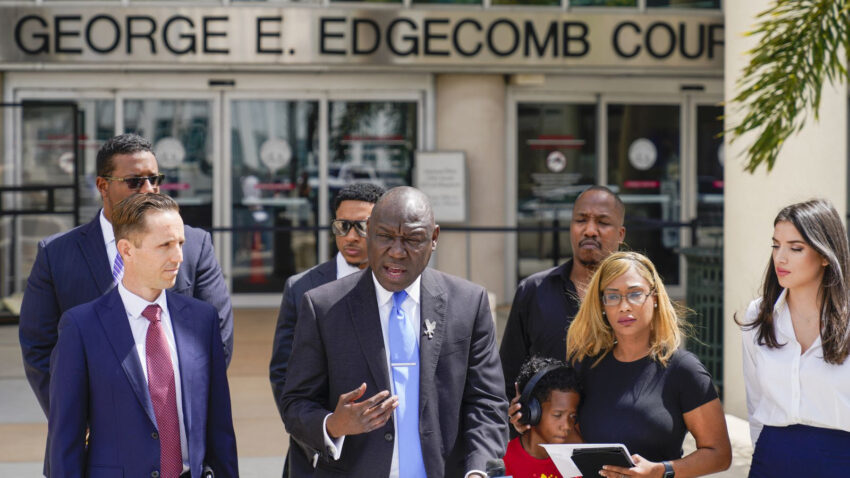
- “A former lead smelter worker has filed suit against Gopher Resource on behalf of his young son alleging that the company’s dangerous and dusty work environment resulted in the boy being exposed to the neurotoxin,” Rebecca Woolington, Corey G. Johnson and Eli Murray reported June 2 for the Tampa Bay Times. Plaintiff Ko Brown and his wife, Tomika, announced the filing along with a group of attorneys, including Benjamin Crump. “The lawsuit is the latest fallout after a Tampa Bay Times investigation published in March found that hundreds of workers at Gopher were exposed to dangerous levels of lead and other chemicals. . . .”
 Amber Payne (pictured) joined the Boston Globe June 1 as editor-in-chief of The Emancipator, the new collaboration between antiracism leader Ibram Kendi and the Globe, Editorial Page Editor Bina Venkataraman wrote Globe staff members. “Until recently, Amber was an executive producer at BET Digital, where she oversaw daily editorial and long form video content for BET.com. Previously, she served as executive producer of Teen Vogue and them., a vertical focused on LGBTQ+ stories. Payne also founded and launched NBCNews.com’s NBCBLK, a media vertical on Black identity, and worked on breaking news and features as an award-winning producer for ‘NBC Nightly News.’ Amber is fresh out of the Nieman fellowship where she has spent the past year deeply studying the history and present of race in America. . . . .”
Amber Payne (pictured) joined the Boston Globe June 1 as editor-in-chief of The Emancipator, the new collaboration between antiracism leader Ibram Kendi and the Globe, Editorial Page Editor Bina Venkataraman wrote Globe staff members. “Until recently, Amber was an executive producer at BET Digital, where she oversaw daily editorial and long form video content for BET.com. Previously, she served as executive producer of Teen Vogue and them., a vertical focused on LGBTQ+ stories. Payne also founded and launched NBCNews.com’s NBCBLK, a media vertical on Black identity, and worked on breaking news and features as an award-winning producer for ‘NBC Nightly News.’ Amber is fresh out of the Nieman fellowship where she has spent the past year deeply studying the history and present of race in America. . . . .”
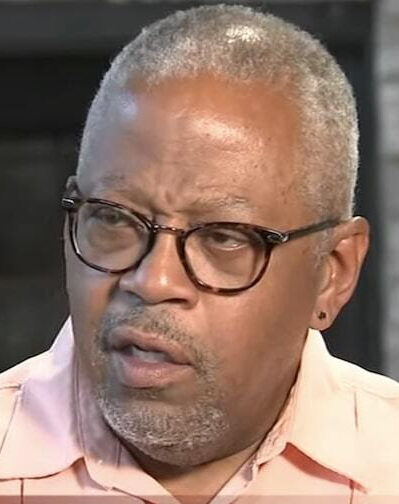 “Roughly a year after covering protests that followed George Floyd’s murder, a Black security officer for the CNN broadcast team reporting live from Minneapolis sued the Minnesota State Patrol troopers who arrested him in an incident his lawyers call racially motivated,” Adam Klasfeld reported June 1 for Law and Crime. “On May 30, 2020, Michael J. Cooper (pictured) provided security as part of the same CNN team that included correspondent Omar Jimenez, who was arrested on air a day earlier.”
“Roughly a year after covering protests that followed George Floyd’s murder, a Black security officer for the CNN broadcast team reporting live from Minneapolis sued the Minnesota State Patrol troopers who arrested him in an incident his lawyers call racially motivated,” Adam Klasfeld reported June 1 for Law and Crime. “On May 30, 2020, Michael J. Cooper (pictured) provided security as part of the same CNN team that included correspondent Omar Jimenez, who was arrested on air a day earlier.”
- Ripple effects of the Ku Klux Klan’s “takeover of Denver’s power structures over the course of just a few years in the mid-1920s are still felt, especially after the release by History Colorado this spring of digital copies of the Klan’s membership ledgers from that time period,“ Elise Schmelzer reported June 6, updated June 9, for the Denver Post. “The more than 30,000 names in the documents include those of the men the Klan’s political machine installed as Colorado’s governor, Denver’s mayor and police chief, judges, state senators and representatives. But the ledgers also show how pervasive the Klan was in day-to-day life, where the people they persecuted and intimidated would encounter them. . . .”
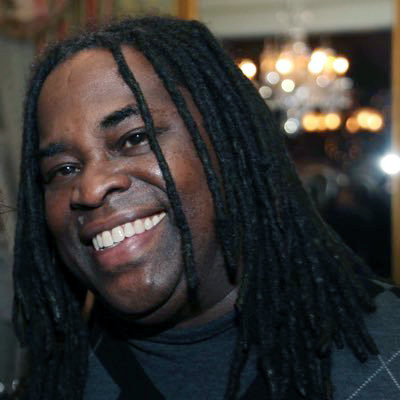 “Boston Globe columnist Adrian Walker (pictured) has been promoted to associate editor, according to an email sent to the staff by editor Brian McGrory, managing editor Jennifer Peter and managing editor for digital Jason Tuohey,” Dan Kennedy reported Friday for his Media Nation site. . . . Walker, a longtime state and local government reporter and editor, has been a columnist since 1998, when the Globe’s star metro columnists, Mike Barnicle and Patricia Smith, were forced out after they were caught fabricating and, in Barnicle’s case, plagiarizing as well. . . . As one of the more prominent Black journalists at the Globe, Walker’s increased clout should help with ongoing efforts to diversify the newsroom. . . .”
“Boston Globe columnist Adrian Walker (pictured) has been promoted to associate editor, according to an email sent to the staff by editor Brian McGrory, managing editor Jennifer Peter and managing editor for digital Jason Tuohey,” Dan Kennedy reported Friday for his Media Nation site. . . . Walker, a longtime state and local government reporter and editor, has been a columnist since 1998, when the Globe’s star metro columnists, Mike Barnicle and Patricia Smith, were forced out after they were caught fabricating and, in Barnicle’s case, plagiarizing as well. . . . As one of the more prominent Black journalists at the Globe, Walker’s increased clout should help with ongoing efforts to diversify the newsroom. . . .”
- The Undefeated has chosen the six students from historically black colleges and universities who will participate in the fifth class of the Rhoden Fellowship – a one-year sports journalism internship program created by staffer William Rhoden that identifies and trains aspiring African American journalists. The 2021-2022 class was to begin June 7 and conclude at the end of the 2021-2022 academic year.
- “Election politicking behind them (or so was claimed), the newly installed city of Coral Gables mayor and commission finally did the right thing Tuesday and reversed a wrong,” Fabiola Santiago wrote May 27 in her Miami Herald column. “They voted unanimously to join the county and nine other municipalities in supporting the designation of South Dixie Highway in Miami-Dade County as ‘Harriet Tubman Highway’ in honor of the courageous abolitionist who helped slaves gain their freedom.”
- “Ricky Kidd spent 23 years in prison for a double murder he did not commit. He’s free now, but has yet to receive a dime in compensation from the state of Missouri,” the Kansas City Star editorialized May 20, updated May 23. “Larry Callanan, who spent 25 years behind bars for a murder he didn’t commit, was released last summer without so as much as a wooden nickel. . . .in Missouri, only those exonerated by DNA evidence are eligible for financial relief. Legislation sponsored by Democratic state Rep. LaKeySha Bosley of St. Louis to provide monetary payments and other benefits to other exonerees has gone nowhere over the last two sessions. . . . Missouri should acknowledge its responsibility and pay up, too.”
 It’s “unlikely that you’ve heard of the very first person to lead a journalism unionization effort,” podcaster Lewis Wallace wrote Wednesday for New York-based WNYC radio’s “On the Media.” “Marvel Cooke (pictured) was a crusading Black journalist who organized one of the first chapters of the Newspaper Guild…and she reported on labor and race until she was pushed out of journalism by redbaiting. . . .”
It’s “unlikely that you’ve heard of the very first person to lead a journalism unionization effort,” podcaster Lewis Wallace wrote Wednesday for New York-based WNYC radio’s “On the Media.” “Marvel Cooke (pictured) was a crusading Black journalist who organized one of the first chapters of the Newspaper Guild…and she reported on labor and race until she was pushed out of journalism by redbaiting. . . .”
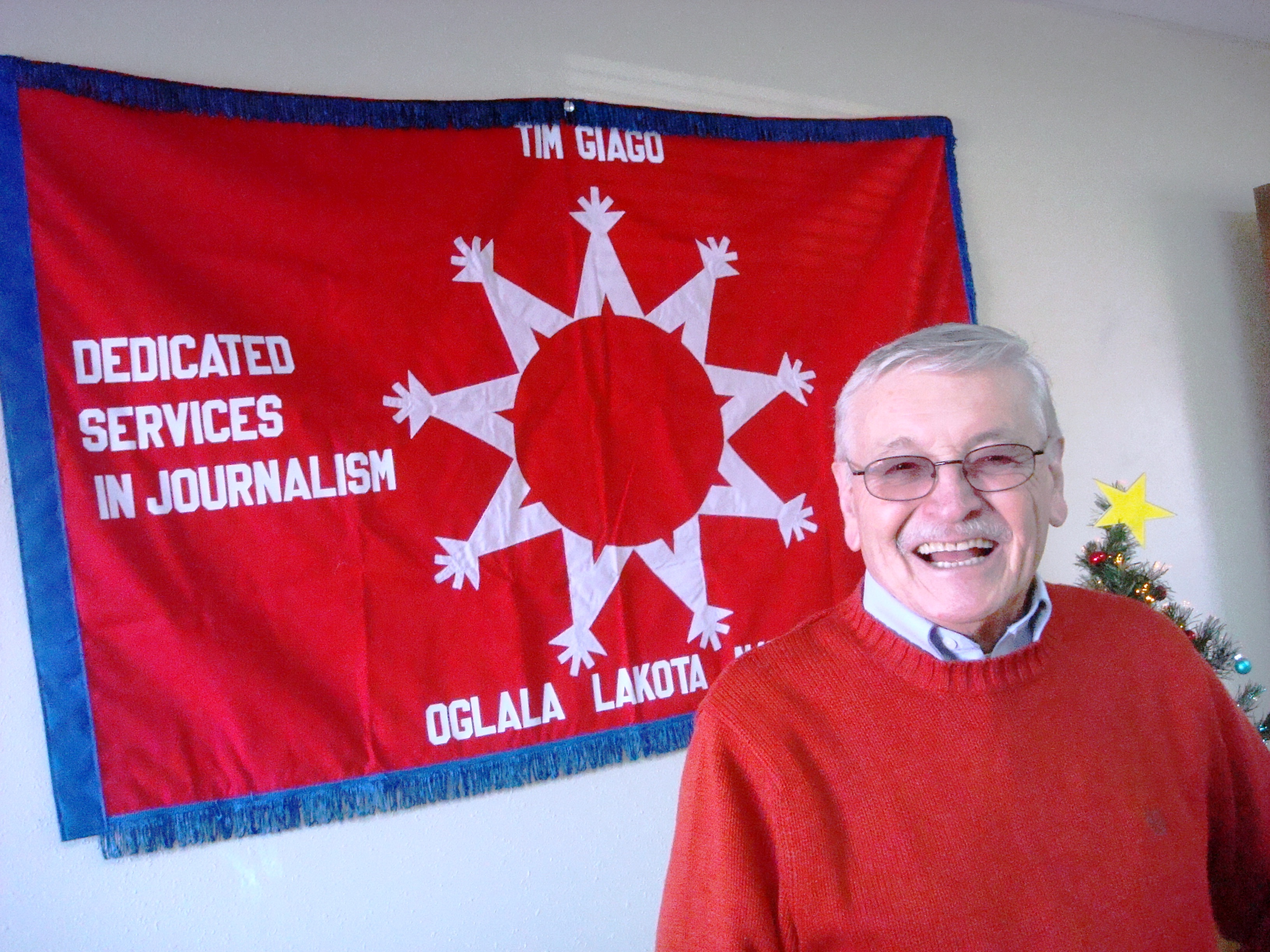 “I am going to retire from this business in July and my current newspaper, Native Sun News Today, will be in good hands,” veteran journalist Tim Giago (pictured), founder of the Native American Journalists Association and of Indian Country Today, announced Wednesday. Writing for the South Dakota Standard in Rapid City, Giago also said he has decided not to proceed with the Native journalists conference he planned after NAJA decided not to have a meeting this year because of the pandemic. “I got hit with an illness and now it looks like I will not have the time or energy to accomplish this mini-convention,” Giago wrote.
“I am going to retire from this business in July and my current newspaper, Native Sun News Today, will be in good hands,” veteran journalist Tim Giago (pictured), founder of the Native American Journalists Association and of Indian Country Today, announced Wednesday. Writing for the South Dakota Standard in Rapid City, Giago also said he has decided not to proceed with the Native journalists conference he planned after NAJA decided not to have a meeting this year because of the pandemic. “I got hit with an illness and now it looks like I will not have the time or energy to accomplish this mini-convention,” Giago wrote.
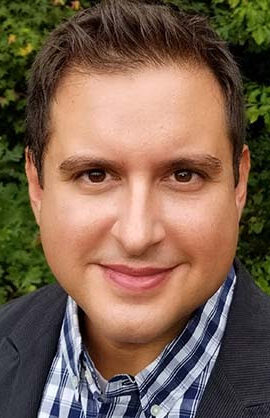 “Rob Capriccioso (pictured) starts today as the new senior editor for Tribal Business News,” the publication reported May 17. “Based in the Washington, D.C. metropolitan area, Capriccioso will help the publication expand its policy coverage and report on the unique tribal-federal relationship. An enrolled member of the Sault Ste. Marie Tribe of Chippewa Indians, Capriccioso formerly served as the D.C. bureau chief for Indian Country Today from 2011 to 2017, and started at the publication in 2008 as a general assignment reporter.”
“Rob Capriccioso (pictured) starts today as the new senior editor for Tribal Business News,” the publication reported May 17. “Based in the Washington, D.C. metropolitan area, Capriccioso will help the publication expand its policy coverage and report on the unique tribal-federal relationship. An enrolled member of the Sault Ste. Marie Tribe of Chippewa Indians, Capriccioso formerly served as the D.C. bureau chief for Indian Country Today from 2011 to 2017, and started at the publication in 2008 as a general assignment reporter.”
- In England, “Julie Burchill, a columnist for the Sunday Telegraph, has been fired for a racist tweet she wrote just after Meghan Markle and Prince Harry announced the birth of their second child,” Carly Ledbetter reported Tuesday for HuffPost. “After the Duke and Duchess of Sussex revealed that they’d named their daughter Lilibet ‘Lili’ Diana Mountbatten-Windsor on Sunday, Burchill tweeted out, ‘What a missed opportunity! They could’ve called it Georgina Floydina!’ ”
- “The Byline Project is open-source software that publishers can install into their WordPress platform,” Rachel Hislop, editor in chief of Okayplayer, wrote Tuesday for the Google News Initiative. “It will streamline the reporting process, starting with receiving pitches from writers, photographers and creators, and take editors all the way through to the moment a story goes live. It will also integrate with industry-standard collaboration Google products — like Google Docs. And once stories are published, the online community can financially support content creators directly by tipping writers.”
- “Storytellers Project, part of the USA TODAY Network, announced this week the launch of the ‘I Am’ series focused on stories of people of color that celebrate the ways race and ethnicity weave through American identities,” USA Today reported. “Each Storytellers Project event showcases a diverse mix of storytellers sharing entertaining, illuminating stories for about an hour. For the “I Am” series, only those who self-identify as people of color will share the kinds of stories only they can tell.”
- The HBO adaptation of Ta’Nehisi Coates’ “Between the World and Me,” CBS News’ “Breonna Taylor: Her Life, Death and Legacy” from “CBS This Morning” and CBS News Radio’s Allison Keyes, who reports the “Weekend Roundup,” are among the winners of the 46th Annual Gracie Awards, which “recognize exemplary programming created by, for and about women in radio, television, cable and interactive media,” TVNewsCheck reported Wednesday. List of winners [PDF]
- “The biggest of all media conventions, the National Association of Broadcasters Show, is going to make an in-person go of things this fall in Las Vegas,” Al Tompkins reported Wednesday for the Poynter Institute. “NAB just announced it will not require masks for vaccinated people, will provide a lot of touchless tech on-site and is urging people to ‘refrain from greeting one another using any physical contact. Meeting rooms and floor theaters will be set up with three feet of social distancing.’ ” Tompkins listed plans for other journalism organizations, including those of color.
- “The Native American Journalists Association commends the Muscogee Nation for approving legislation to add a ballot question that would strengthen free press protections within the tribal constitution,” Red Lake Nation News reported June 3. It also said, “If adopted, the Muscogee Nation would be the first tribe to add free press protections to the constitution for their independent tribal media. . . .”
 “We are excited to announce that Soumya Karlamangla (pictured) is going to be the next lead writer for California Today, our daily newsletter for helping hundreds of thousands of readers stay on top of what they need to know about a state that is vital to the country’s culture, politics and economy,” the New York Times announced Tuesday. “As a Los Angeles Times journalist for the past eight years, Soumya has reported from up and down the Golden State, bringing Californians’ stories to light with empathy and grace.”
“We are excited to announce that Soumya Karlamangla (pictured) is going to be the next lead writer for California Today, our daily newsletter for helping hundreds of thousands of readers stay on top of what they need to know about a state that is vital to the country’s culture, politics and economy,” the New York Times announced Tuesday. “As a Los Angeles Times journalist for the past eight years, Soumya has reported from up and down the Golden State, bringing Californians’ stories to light with empathy and grace.”
- Robert F. Kennedy Human Rights announced the winners of its 2021 RFK Book and Journalism Awards on June 3. “The newsrooms of the USA TODAY Network in the South won this year’s Domestic Print Award and were also named the Grand Prize winner for their collaborative project, The Confederate Reckoning, which critically examined the legacy of the Confederacy and its influence on systemic racism today, “Reuters’ Dying Inside won the Criminal Justice Reform Prize, a new category honoring exemplary reporting on the impacts of mass incarceration. The multimedia project included the most exhaustive database of jail deaths ever published, pinpointing where suicide, botched healthcare, and bad jailkeeping are claiming lives in a system with scant oversight. The Manual RedEye, the student news website of duPont Manual High School in Louisville, Kentucky, won this year’s New Voices for Justice Award for their investigation, “Bigoted Badges: How Hate and Violence are Embedded in Kentucky Law Enforcement Training.”
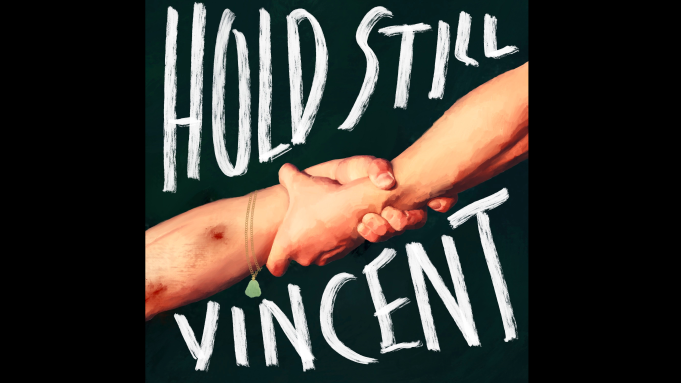 “A podcast dramatizing the 1982 murder of Vincent Chin, a Chinese American engineer, has been removed from audio platforms by producers — after Chin’s family members” and journalist and activist Helen Zia “said they were not consulted about the project,” Todd Spangler reported June 4 for Variety. “The ‘Hold Still, Vincent’ podcast, whose producers included Gemma Chan (‘Eternals,’ ‘Crazy Rich Asians’), featured a star-studded cast for what was described as a table read of a script for a prospective feature film. In addition, the podcast featured interviews with artists and activists of the Asian American and Pacific Islander communities, moderated by actor John Cho.”
“A podcast dramatizing the 1982 murder of Vincent Chin, a Chinese American engineer, has been removed from audio platforms by producers — after Chin’s family members” and journalist and activist Helen Zia “said they were not consulted about the project,” Todd Spangler reported June 4 for Variety. “The ‘Hold Still, Vincent’ podcast, whose producers included Gemma Chan (‘Eternals,’ ‘Crazy Rich Asians’), featured a star-studded cast for what was described as a table read of a script for a prospective feature film. In addition, the podcast featured interviews with artists and activists of the Asian American and Pacific Islander communities, moderated by actor John Cho.”
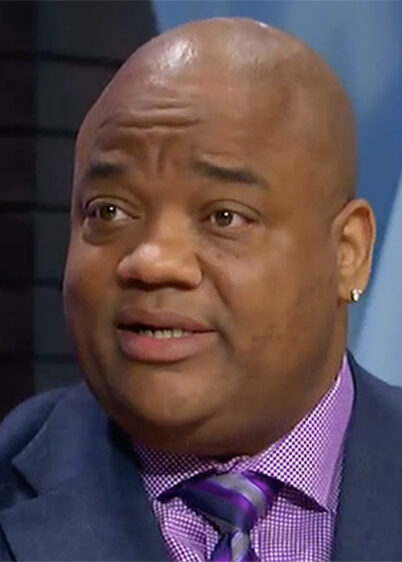 “Conservative media outlet Blaze Media will expand to Nashville as part of a new content partnership the company has struck with Jason Whitlock (pictured), a sports and culture journalist who has gained a following during stints at ESPN, Fox Sports and other venues,” Brian Steinberg reported Tuesday for Variety. “As part of the agreement, Blaze Media will launch an hour-long daily podcast and digital TV show, ‘Fearless with Jason Whitlock,’ from a newly acquired and renovated Nashville studio. Blaze and Whitlock will also team up on a writing vertical, Fearless, that will explore the intersection of sports, culture, faith, and race.”
“Conservative media outlet Blaze Media will expand to Nashville as part of a new content partnership the company has struck with Jason Whitlock (pictured), a sports and culture journalist who has gained a following during stints at ESPN, Fox Sports and other venues,” Brian Steinberg reported Tuesday for Variety. “As part of the agreement, Blaze Media will launch an hour-long daily podcast and digital TV show, ‘Fearless with Jason Whitlock,’ from a newly acquired and renovated Nashville studio. Blaze and Whitlock will also team up on a writing vertical, Fearless, that will explore the intersection of sports, culture, faith, and race.”
- Dr. Howard Bauchner, the “top editor of JAMA, the influential medical journal, stepped down on Tuesday amid a controversy over comments about racism made by a colleague on a journal podcast. But critics saw in the incident something more pernicious than a single misstep: a blindness to structural racism and the ways in which discrimination became embedded in medicine over generations,” Apoorva Mandavilli reported June 2 for The New York Times. She also wrote, “Following an outcry over the incident, editors at JAMA on Thursday released a plan to improve diversity among its staff, as well as in research published by the journal.”
- “Specifically, 156,000 African American children under 18 are missing and unaccounted,” Stacy M. Brown wrote June 3 for the National Newspaper Publishers Association. “Other than by their families, neighbors and friends, it can appear that most of these young people are forgotten — even by law enforcement officials charged with solving the ever-growing body of cold cases. The National Newspaper Publishers Association (NNPA) continues its series on the plight of missing African American girls and boys who have disappeared. . . . “
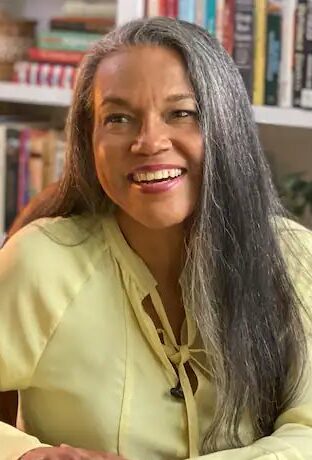 “Julia Child’s recipes are rightly famous, so it seems fitting that an award in her honor is helping another prominent woman combine the elements of her own life’s pantry,” Emily Heil wrote June 2 for The Washington Post. “Toni Tipton-Martin (pictured), a cookbook author, culinary historian, and editor in chief of Cook’s Country magazine, was selected by the jury from the Julia Child Foundation for Gastronomy and the Culinary Arts to receive its seventh annual award. And Tipton-Martin has big plans. . . .”
“Julia Child’s recipes are rightly famous, so it seems fitting that an award in her honor is helping another prominent woman combine the elements of her own life’s pantry,” Emily Heil wrote June 2 for The Washington Post. “Toni Tipton-Martin (pictured), a cookbook author, culinary historian, and editor in chief of Cook’s Country magazine, was selected by the jury from the Julia Child Foundation for Gastronomy and the Culinary Arts to receive its seventh annual award. And Tipton-Martin has big plans. . . .”
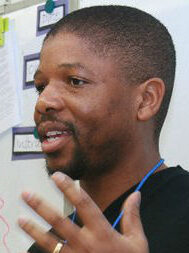 Issac J. Bailey (pictured), a 2014 Nieman Fellow who is James K. Batten Professor of Public Policy at Davidson College, won for “Best Commentary” in the Mirror Awards competition for excellence in media industry reporting, Syracuse University’s S.I. Newhouse School of Public Communications announced Wednesday. Participation in the contest by journalists of color has historically been low. Bailey won for three pieces in Nieman Reports: “George Floyd, Ahmaud Arbery, and One Journalist’s Painfully Honest Self-Examination on Racism,” “Is Biden’s Stutter Being Mistaken for ‘Cognitive Decline’?” and “Will This Racial Reckoning Finally Force Newsrooms to Listen to Every Staffer’s Voice?” Also, “the Newhouse School presented the Fred Dressler Leadership Award to Jorge Ramos of Univision Noticias, and the inaugural Lorraine Branham IDEA Award to Brown Girls Doc Mafia, accepted by co-founder Iyabo Boyd.”
Issac J. Bailey (pictured), a 2014 Nieman Fellow who is James K. Batten Professor of Public Policy at Davidson College, won for “Best Commentary” in the Mirror Awards competition for excellence in media industry reporting, Syracuse University’s S.I. Newhouse School of Public Communications announced Wednesday. Participation in the contest by journalists of color has historically been low. Bailey won for three pieces in Nieman Reports: “George Floyd, Ahmaud Arbery, and One Journalist’s Painfully Honest Self-Examination on Racism,” “Is Biden’s Stutter Being Mistaken for ‘Cognitive Decline’?” and “Will This Racial Reckoning Finally Force Newsrooms to Listen to Every Staffer’s Voice?” Also, “the Newhouse School presented the Fred Dressler Leadership Award to Jorge Ramos of Univision Noticias, and the inaugural Lorraine Branham IDEA Award to Brown Girls Doc Mafia, accepted by co-founder Iyabo Boyd.”
- “The Minnesota Spokesman-Recorder, which has documented life in the Twin Cities’ Black community for more than 85 years, is in the process of putting its archives dating back to 1934 online at the Minnesota Historical Society’s digital newspaper hub,” the Associated Press reported May 31.
 “DuJuan A. McCoy (pictured), founder and chairman of the Multicultural News Network, today announced that the Multicultural News Network (MNN) has secured a multi-year nationwide linear distribution agreement with Charter Communications Inc. to make MNN available to its Spectrum customers upon the network’s commercial launch,” Mark K. Miller reported June 2 for TVNewsCheck. McCoy, based in Indianapolis, said, “As one of the few black-owned media companies in the United States, I can confirm that Charter is a true advocate for diversity in media and, in my opinion, has been one of the industry leaders and on the forefront of DE&I. I am hopeful that others will take note of Charter’s success in this area and join this necessary movement.”
“DuJuan A. McCoy (pictured), founder and chairman of the Multicultural News Network, today announced that the Multicultural News Network (MNN) has secured a multi-year nationwide linear distribution agreement with Charter Communications Inc. to make MNN available to its Spectrum customers upon the network’s commercial launch,” Mark K. Miller reported June 2 for TVNewsCheck. McCoy, based in Indianapolis, said, “As one of the few black-owned media companies in the United States, I can confirm that Charter is a true advocate for diversity in media and, in my opinion, has been one of the industry leaders and on the forefront of DE&I. I am hopeful that others will take note of Charter’s success in this area and join this necessary movement.”
 Journalist and filmmaker Geraldine Moriba (pictured) is joining Allen Media Group’s The Grio as senior vice president of news and entertainment, focusing on development, brand sponsorships and editorial partnerships,” Ted Johnson reported June 2 for Deadline. Johnson also wrote, “Moriba is the host and executive producer of Sounds Like Hate, a podcast series funded by the Southern Poverty Law Center, and is a recent Stanford University Brown Institute research scientist and John S. Knight Journalism fellow. She previously was vice president for diversity, equity and inclusion for CNN Worldwide, and served as senior producer with standards and practices and as an executive producer of live broadcasts and news specials at NBC News and MSNBC.”
Journalist and filmmaker Geraldine Moriba (pictured) is joining Allen Media Group’s The Grio as senior vice president of news and entertainment, focusing on development, brand sponsorships and editorial partnerships,” Ted Johnson reported June 2 for Deadline. Johnson also wrote, “Moriba is the host and executive producer of Sounds Like Hate, a podcast series funded by the Southern Poverty Law Center, and is a recent Stanford University Brown Institute research scientist and John S. Knight Journalism fellow. She previously was vice president for diversity, equity and inclusion for CNN Worldwide, and served as senior producer with standards and practices and as an executive producer of live broadcasts and news specials at NBC News and MSNBC.”
- “The migration of good journalists into other fields expands interest in the well-being of important institutions,” Roy Peter Clark argued for the Poynter Institute June 4. “I know many of these ‘former journalists,’ and they have not left their skills and values behind. They use them every day for the public good.” Clark’s piece was headlined, “There’s no such thing as a former journalist.” He also wrote, “What would happen if we created a new organization — call it XJ (for so-called ex-journalists). We would lend those pilgrims the moral support and continuing craft training they need to fulfill their mission — not as flack catchers — but as proponents of the public good.”
- Condé Nast has named Millie Tran as vice president, content strategy and growth, a newly created role, the company announced June 2. Tran joins Condé Nast from the Texas Tribune and has worked at the New York Times and BuzzFeed.
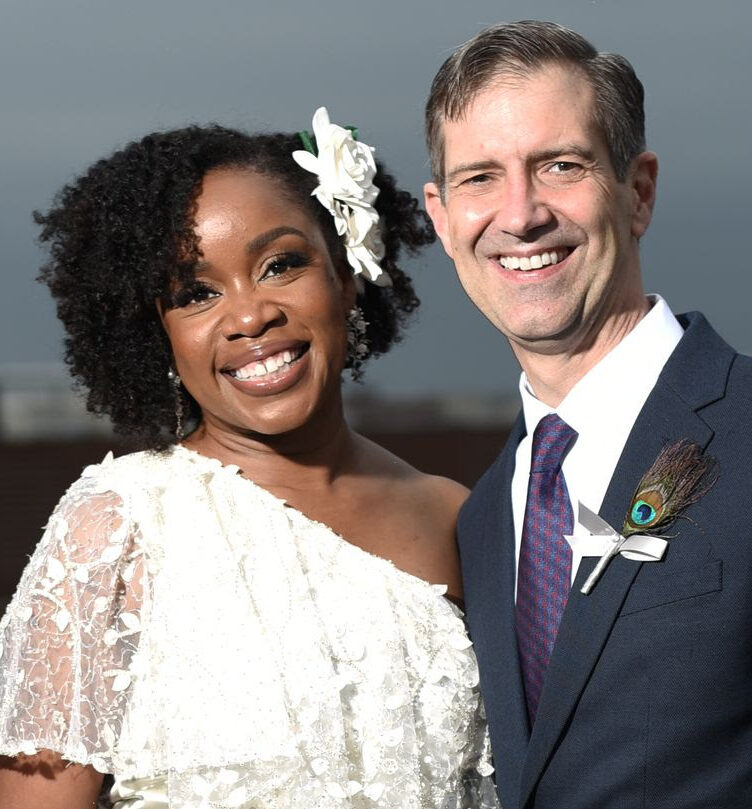 The former Kimberly Atkins, Boston Globe columnist, defended adding “Stohr” to her last name after her marriage to Greg Stohr (pictured), writing June 3 that she can still keep her feminist card. If “there is any marriage, besides the nearly 64-year union of my parents, that I hope to model my own after, it would be that of the late Justice Ruth Bader Ginsburg and her husband Martin Ginsburg, who famously forged a loving partnership of equals. That such a feminist hero made the choice to take her husband’s name while keeping her own makes me all the more certain about my decision to do the same.”
The former Kimberly Atkins, Boston Globe columnist, defended adding “Stohr” to her last name after her marriage to Greg Stohr (pictured), writing June 3 that she can still keep her feminist card. If “there is any marriage, besides the nearly 64-year union of my parents, that I hope to model my own after, it would be that of the late Justice Ruth Bader Ginsburg and her husband Martin Ginsburg, who famously forged a loving partnership of equals. That such a feminist hero made the choice to take her husband’s name while keeping her own makes me all the more certain about my decision to do the same.”
- “We are delighted to announce the promotion of Charanna Alexander to senior staff editor on Weddings,” New York Times editors announced May 25. “She will replace the current Weddings editor, LeAnn Wilcox, who is retiring at the end of this week. Charanna came to The Times almost 15 years ago, fresh from Howard University, where she studied broadcast journalism. . . . Last fall, she produced a memorable look at the joy of homecoming celebrations at H.B.C.U.s. . . .”
 “Sharon Kits Kimathi (pictured) has joined the Thomson Reuters Foundation as an inclusive economies editor,” Mariam Ahmed reported June 4 for Talking Biz News. “Recently, she was an editor at FinTech Futures, managing the FinTech Futures and Banking Technology editorial teams. . . .”
“Sharon Kits Kimathi (pictured) has joined the Thomson Reuters Foundation as an inclusive economies editor,” Mariam Ahmed reported June 4 for Talking Biz News. “Recently, she was an editor at FinTech Futures, managing the FinTech Futures and Banking Technology editorial teams. . . .”
- “Google announced it’s removing its global lead on diversity strategy and research from his post after it was discovered he’d made antisemitic comments in a past blog post,” Julie Gerstein reported June 3 for Business Insider. “Kamau Bobb will be reassigned to a STEM research role after The Washington Free Beacon uncovered a 2007 blog post by Bobb titled ‘If I were a Jew.’ ‘If I were a Jew I would be concerned about my insatiable appetite for war and killing in defense of myself,’ he wrote in the now-deleted post. . . .”
- “Dr. Sanjay Gupta, CNN’s chief medical correspondent, has been awarded the Brooks Jackson Prize for Fact-Checking for his work correcting Covid-19 misinformation,” Annenberg Public Policy Center announced June 2.
- “Citizens, regardless of party affiliations and ethnicity, must defend their constitutional right to freedom of expression,” Michael Asikabulu wrote Wednesday for Nigeria’s Daily Maverick. “These rights have been undermined by President Muhammadu Buhari ‘s government in its decision to shut down Twitter operations.” In addition, the Nigeria Union of Journalists called on Buhari to reverse the ban. However, Iliyasu Gadu of the Daily Trust, a former foreign service officer, said of foreign governments that Twitter is “one of the effective instruments through which they collectively as a coalition of ‘blue-eyed master race countries’ deploy to manipulate and control the mind of the ‘lower races’ of the world to accept their supremacy.”
[btnsx id=”5768″]
To subscribe at no cost, please send an email to journal-isms+subscribe@groups.io and say who you are.
Facebook users: “Like” “Richard Prince’s Journal-isms” on Facebook.
Follow Richard Prince on Twitter @princeeditor
Richard Prince’s Journal-isms originates from Washington. It began in print before most of us knew what the internet was, and it would like to be referred to as a “column.” Any views expressed in the column are those of the person or organization quoted and not those of any other entity. Send tips, comments and concerns to Richard Prince at journal-isms+owner@
View previous columns (after Feb. 13, 2016).
View previous columns (before Feb. 13, 2016)
- Diversity’s Greatest Hits, 2018 (Jan. 4, 2019)
- Book Notes: Is Taking a Knee Really All That? (Dec. 20, 2018)
- Book Notes: Challenging ’45’ and Proudly Telling the Story (Dec. 18, 2018)
- Book Notes: Get Down With the Legends! (Dec. 11, 2018)
- Journalist Richard Prince w/Joe Madison (Sirius XM, April 18, 2018) (podcast)
- Richard Prince (journalist) (Wikipedia entry)
- February 2018 Podcast: Richard “Dick” Prince on the need for newsroom diversity (Gabriel Greschler, Student Press Law Center, Feb. 26, 2018)
- Diversity’s Greatest Hits, 2017 — Where Will They Take Us in the Year Ahead?
- Book Notes: Best Sellers, Uncovered Treasures, Overlooked History (Dec. 19, 2017)
- An advocate for diversity in the media is still pressing for representation, (Courtland Milloy, Washington Post, Nov. 28, 2017)
- Morgan Global Journalism Review: Journal-isms Journeys On (Aug. 31, 2017)
- Diversity’s Greatest Hits, 2016
- Book Notes: 16 Writers Dish About ‘Chelle,’ the First Lady
- Book Notes: From Coretta to Barack, and in Search of the Godfather
- Journal-isms’ Richard Prince Wants Your Ideas (FishbowlDC, Feb. 26, 2016)
- “JOURNAL-ISMS” IS LATEST TO BEAR BRUNT OF INDUSTRY’S ECONOMIC WOES (Feb. 19, 2016)
- Richard Prince with Charlayne Hunter-Gault,“PBS NewsHour,” “What stagnant diversity means for America’s newsrooms” (Dec. 15, 2015)
- Book Notes: Journalists Follow Their Passions
- Book Notes: Journalists Who Rocked Their World
- Book Notes: Hands Up! Read This!
- Book Notes: New Cosby Bio Looks Like a Best-Seller
- Journo-diversity advocate turns attention to Ezra Klein project (Erik Wemple, Washington Post, March 5, 2014)
![]()


18 comments